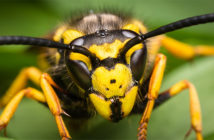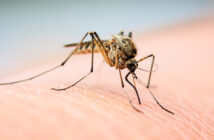Spanish and other European pest control experts, who gathered for the EXPOCIDA IBERIA 2012 professional meeting and trade fair in Madrid on 2 March heard that there has been a 70% increase in the number of requests for bed bug control services in Spain and Portugal over the past 5 years. Bed bugs were eradicated from Spain half a century ago but, like many other developed countries in Europe, along with the USA and Australia, the country has seen a rapid resurgence in the problem.
The news came from a new report produced by Anecpla (the Spanish Pest Control Association), in cooperation with the University of Madrid, which analysed the incidence of this new bed bug plague in Spain and Portugal.
|
According to Milagros Ferná¡ndez de Lezeta, Anecpla’s general manager: “Bed bugs have turned out to be a difficult to eradicate pest. It is important that society has all the available information to detect and prevent bed bugs spreading. Therefore, all parties involved – premises managers, service companies and health authorities – must work together.” According to the new research, 80% of pest control companies have carried out services related to bed bug eradication in the past 5 years. Most of these have taken place in homes (35%), hotels, guest and boarding houses (30%), hostels (10%), catering trade (5%), followed by old people’s homes, public transport, schools, nurseries, universities and leisure centers (bowling alleys, cinemas and so on). Most have been called in once an infestation has taken hold. |
|
|
|
The other reasons for calling in pest controllers were following complaints and in third place for prevention reasons. Almost half (45%) of clients do not contract for routine check-ups after pest control procedures have been completed. However 47% of Spanish clients do employ preventive methods such as mattress covers after the bed bugs have been controlled but in Portugal only 15% take any preventative action. Travel and tourism named as main cause of bed bug resurgence Milagros continues “Over recent years, milder winters have allowed shorter reproductive cycles which added to increases in the movement of people and goods have favoured the spread of new pests which we must confront to avoid possible health risks,” she warned. But it wasn’t just bed bugs that were on the agenda. Other topics considered by the 300 plus delegates attending the second Expocida Iberia event included the threat of emerging and re-emerging vector spread diseases and the impact of invading exotic species such as the American cockroach, the tiger mosquito, the Monk parakeet and Asian wasps. Other topical health issues were also discussed such as the prevention and control of legionella, urban bird management, pests that attack wood and biocidal product restrictions in the EU. In total over the two days of the trade fair held at IFEMA’s North Convention Center in Madrid more than 1,600 pest professionals from all over the world visited the event which covered some 1800 square metres. All of them agreed that there was a need for greater public awareness about pests and pest control and a more prevention-led culture in society. Important too was the need for pest control companies to keep up to date and to become more and more as they adapt to new regulations, new clients requirements and sectors and even new pests. For more information on the Spanish event click here
|
||






